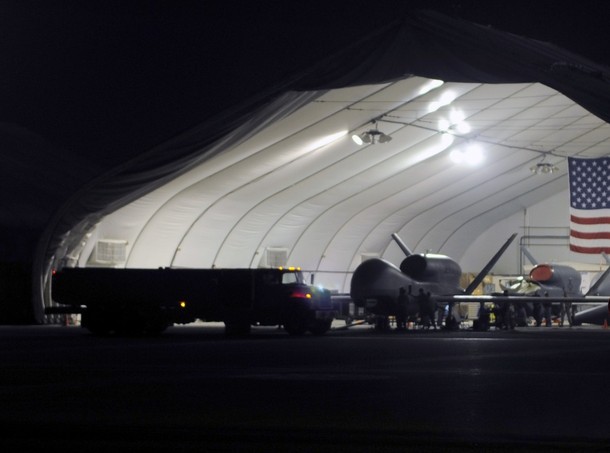
WASHINGTON: CIA drones killed at least 581 militants in Pakistan last year, but only two were noteworthy enough to appear on a US list of most-wanted terrorists, the Washington Post reported on its website late Sunday, citing independent estimates.
The report, due to appear in Monday’s edition of the daily, said that despite a drastically escalated number of Predator drone strikes, the number of high-ranking militants as a result has fallen or increased only slightly.
The daily reported that the relatively meager recent return on US efforts to target Islamic militants with the controversial drone program has raised questions about the purpose and parameters of the drone campaign.
The Post reported that the CIA carried out a record 118 drone strikes over the last year, costing more than $1 million apiece.
The CIA is increasingly killing “mere foot soldiers,” a senior Pakistani official said, adding that the issue has come up in discussions in Washington involving President Asif Ali Zardari.
The official said Pakistan has pressed the Americans “to find better targets, do it more sparingly and be a little less gung-ho.”
Experts told The Post that the program, which began with intermittent lethal attacks on Al-Qaeda leaders has evolved into a campaign that seems primarily focused on lower-level fighters.
“I think it’s hard to make the case that the 94 percent cohort threaten the United States in some way,” said Peter Bergen, a director at the New America Foundation who said data on the strikes indicate that 94 percent of fatalities are lower-level militants.
“There’s been very little focus on that question from a human rights perspective. Targeted killings are about leaders — it shouldn’t be a blanket dispensation,” he said.












































Dear visitor, the comments section is undergoing an overhaul and will return soon.